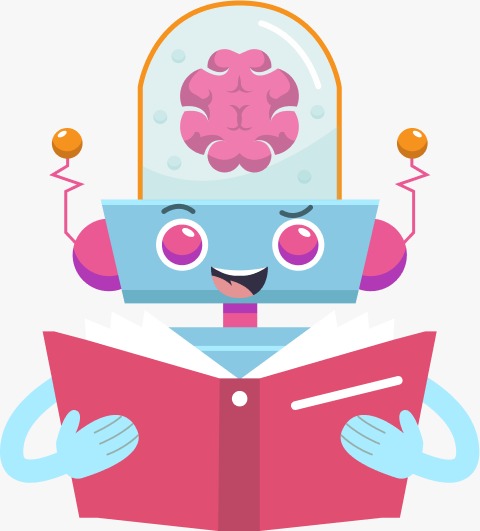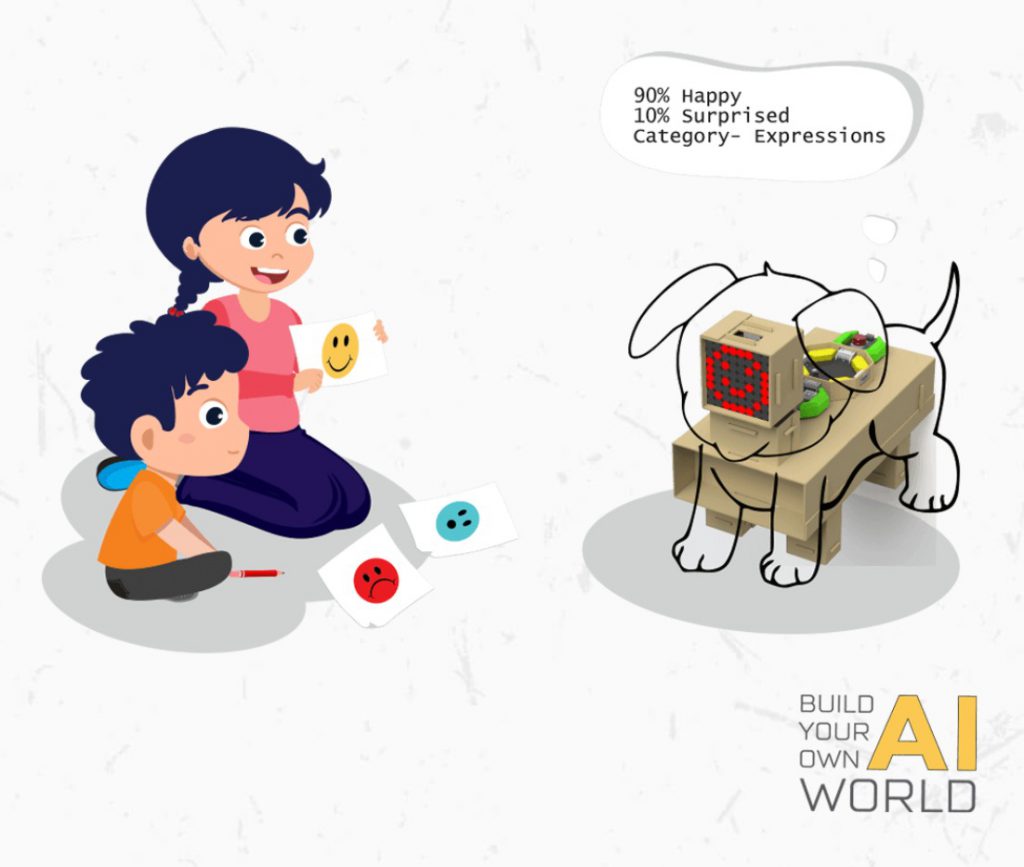From google’s search query suggestion to Sophia, a humanoid robot, AI is everywhere. But the global study by Pega – What Consumers Think About AI – revealed that nearly half of the people’s percentage out of the 70% of recorded responses, told that they understand AI, did not know that AI can solve problems or understand speech.
Thus in the era of unaware consumers, planting a seed in the initial age becomes a necessity that also improves creativity and problem-solving ability in young minds. However, the question appears here that what is the right age to start with learning AI. Before that, let’s see what AI or Artificial Intelligence actually is.
What is AI?
AI stands for Artificial Intelligence, the term originated in 1956 by John McCarthy at a Dartmouth conference. He stated that artificial intelligence is the science and engineering of making intelligent machines.

The intelligent machines refer to machines that possess human intelligence such as decision making, solving complex problems, making precise predictions, and more.
Domains of Artificial Intelligence
A human brain weighs several factors – analyzing past experiences, gathering useful information, etc – to solve a problem. Similarly, AI requires certain domains to solve a problem efficiently and intelligently.
Here, we have detailed each domain briefly that contributes to AI’s accuracy of task performance.
Machine Learning:
In the simplest terms, machine learning is the capability of machines to learn and improve from the recorded data (past experiences) without being programmed.
Application: Virtual Personal Assistants such as Google Assistant, Siri, Alexa, and Cortana.
Deep Learning:
It is an imitation of the human brain’s working, assists the machines in solving complex problems and decision making with the help of artificial neural networks. Thus, also known as neural networking.
Application: News Aggregation and Fraud Detection Systems.
NLP (Natural Language Processing):
As the name suggests, NLP is a medium that deals with human and machine interaction.
Application: Chatbots and speech recognition systems.
Robotics:
In AI, it is the branch that possesses the capability to create robots that operate intelligently.
Application: Robotics being used in assembly lines and as a means of interaction with humans in various hotels.
Expert System:
It is a programmed system fit for advising, assisting human decision making, solving complex problems, diagnosing, explaining, predicting results, even suggesting multiple solutions to a problem, and much more.
Application: CaDet – can detect cancer at early stages. PXDES – can determine the type and degree of lung cancer.
Fuzzy Logic:
A human brain weighs every possibility before dictating the conclusion varying between Yes and No. The fuzzy logic does the same – resembles the similar human reasoning by considering uncertainties and inaccuracies of any situation.
Application: Decision making support system in large businesses and getting used in expert systems.
Prerequisites for Novices to Learn AI
In the pursuit of learning AI, there are some essential skills for the novices to begin with. Take a look to check down the list.

1. Mindset
A mindset, which is willing to learn, is already halfway on the journey. Thus until the young mind has the hunger for knowledge, the practice will be nothing but a forceful effort. Since the approach of learning by doing is already exploding in the country, the awareness of the possibilities of AI education will be enough to unfold the curiosity further in kids.
2. Skillset
If a ready mindset depicts the flow of curiosity and hunger for knowledge, then the skillset is a pathway to direct it. The kids have to touch the following.
Hold on Mathematics: The basic concepts of linear algebra, calculus, probability, and statistics help in
(i) optimizing data and models,
(ii) making assumptions/hypotheses, and
(iii) data analysis and interpretation.
Thanks to the Python learning libraries (SciKit Learn) and hundreds of online apps available that take care of hard maths for the kids.
Programming Language: Python, C++, JAVA, LISP, R, and the list gets more intimidating and overwhelming. Joseph Santarcangelo, Ph.D., IBM data scientist advises that Python is all you need to get started. You can easily start with getting the data and building a simple prediction model while beginning.
What is the Right Age to Start AI Learning?
Several studies have proved that young minds are quicker learners than any other age of life. So, we can consider the least possible age i.e. 2-3 years of age will be perfect to start exploring AI. But, Dr. Madeleine Portwood, an educational psychologist who had 25 years of experience, said that the social skills of kids suffer because of early exposure to technology like smartphones, computers, and tablets.
Thus, after considering Dr. Portwood’s words, we concluded that the kids of 5+ years of age can be a fit to start AI education with continuous parental or educator support.
Summing Up!
Thus, If you want your kid to be able to understand AI better way then 8+ years of age is most essential as during this time the Abstract Thinking in the child develops and the child is also able to grasp concepts more easily in this age. Also, the brain is more developed of the child at this age as he is already handling responsibilities of school homework and other types of tasks.
 9924
9924

